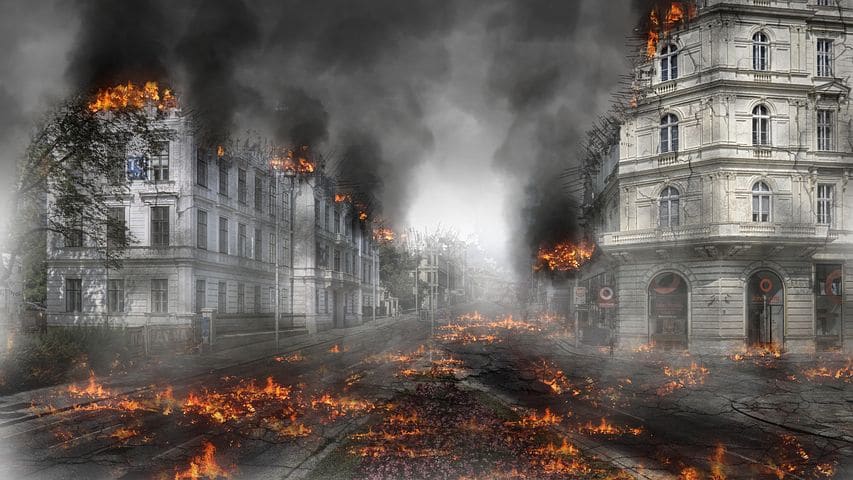But know this, that in the last days grievous times shall come. For men shall be lovers of self, lovers of money, boastful, haughty, railers, disobedient to parents, unthankful, unholy, without natural affection, implacable, slanderers, without self-control, fierce, no lovers of good, traitors, headstrong, puffed up, lovers of pleasure rather than lovers of God; holding a form of godliness, but having denied the power thereof: from these also turn away. II Timothy 3:1–5
Throughout its history the world has been governed by laws of which the law of God was the foundation. Because of men’s obedience to law life was possible. A moral code was adopted to which all men were to give allegiance. It is difficult to imagine what life would be like if laws and moral codes would no longer have an honored place.
Yet, the time shortly before the return of our Savior will be characterized by a spirit of lawlessness. Those will be grievous times, especially for the church. The church has sought to teach true morality according to the law of God. Its influence has been considerable in virtually all times, but in the last days it will be different.
Men will be lovers of self. They make a caricature of the love demanded by the law. This is the boldest expression of selfishness. Because of this they are lovers of money which is the means to satisfy their selfish desires. They become haughty and boastful of their own achievements. Considering only themselves and their own needs, they turn against both God and their fellow-men. They become railers, they become abusive. Disobedience to parents is the result. No one is honored or respected; not even parents by their own children. 11en are thankful to no one but believe they have a right to all they have received. All the Christian virtues are foreign to them.
They are people without any natural affection, they have no pity, they are slanderers (“devils” in the original). They are the slaves of the devil to whom they sold themselves. Consequently, they lack all self-controL They become fierce, as wild beasts. Naturally, they hate all good.
These will even betray the ones who are most closely related to them. They have no honor. Recklessly they throw themselves into sin and destruction. Instead of the love for God, they have love only for their own pleasures.
These people may still have membership in the church here on earth. They will even have a form of godliness. However, it is only formalism. The power of godliness, that power which brings one into a life-union with God and changes the whole life of the individual, has been denied. Their religion is meaningless.
What a picture of fallen man! Who would ever think that the creature who was made good and in the image of God himself could ever fall so low! It is almost beyond human comprehension. But, in the last days such condi~ tions will prevail. Man’s boasted progress leads to thisl
Law is still upheld today. There are many organizations, besides the church, which are vitally interested in the moral betterment of our society. Are those days then far off? Is this one of those signs which teaches us that the world still has far to go before it reaches its end? Some think so.
Though law is still upheld, it is becoming far more difficult to do so than a generation ago. The inhumanity of man to man in many countries today reminds us of the catalog of evils given by Paul in this passage. Betrayal of one’s loved ones is not unheard of today.
When man has once forsaken the law of God and has made mockery of its basic demand, there is almost no limit to the evils of which he becomes capable. Where godliness is no power in a man’s life, he falls under the domination of the evil one. The kind of life described in this passage is not unheard of today. It is later than we think. “Grievous times”…the church will have to live in a world peopled by enemies of all law and order.

Questions
1. Do you think that the problem of juvenile delinquency is a sign of the times? Is the present attitude toward law, law-enforcement, and punishment different from what it was in former times?
2. How did many of the sins mentioned here come to actual expression in the occupied countries of Europe from 1940 to 1945? Have things improved since that time?
3. What must the church do in such a time of lawlessness? Should we emphasize ethics more than doctrine from our pulpit?
